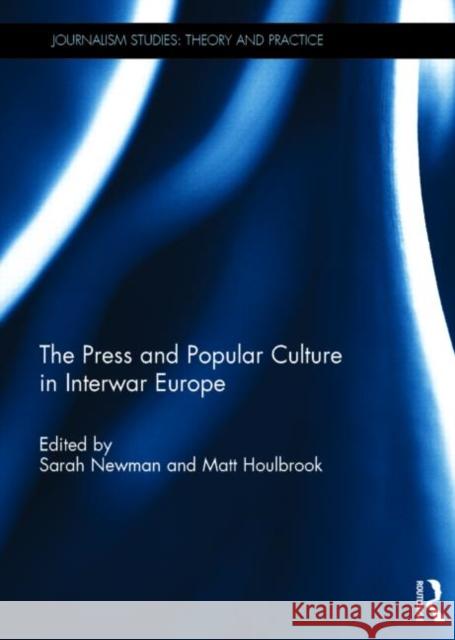The Press and Popular Culture in Interwar Europe » książka
The Press and Popular Culture in Interwar Europe
ISBN-13: 9780415747639 / Angielski / Twarda / 2014 / 154 str.
The Press and Popular Culture in Interwar Europe
ISBN-13: 9780415747639 / Angielski / Twarda / 2014 / 154 str.
(netto: 718,58 VAT: 5%)
Najniższa cena z 30 dni: 654,86
ok. 16-18 dni roboczych.
Darmowa dostawa!
This collection shows the importance of a comparative European framework for understanding developments in the popular press and journalism between the wars. This was, it argues, a formative and vital period in the making of the modern press. A great deal of fine scholarship on the development of modern forms of journalism and newspapers in the nineteenth and twentieth centuries has emerged within discrete national histories. Yet in bringing together essays on Britain, France, Germany, Italy and Poland, this book discerns points of convergence and divergence, and the importance of the European context in shaping how news was defined, produced and consumed.
Challenging the tendency of histories of the press to foreground processes of Americanisation and the displacement of older notions of the fourth estate by new forms of human interest journalism, the chapters draw attention to the complex ways in which the popular press continued to be politicized throughout the interwar period. Building on this analysis, the book examines the forms, processes and networks through which newspapers were produced for public consumption. In a period of massive social, political and economic upheaval and conflict, the popular press provided a forum in which Europe s meanings and nature could be constructed and contested. The interpersonal, material and technological links between newspapers, news corporations and news agencies in different countries served to "define" the outlines of Europe. Europe was called into being through the circulation of news and the practices and networks of the modern mass press traced in this volume. This publication is highly relevant to scholars of the history of journalism and cultural historians of interwar Britain and Europe.
This book was originally published as a special issue of "Journalism Studies.""











